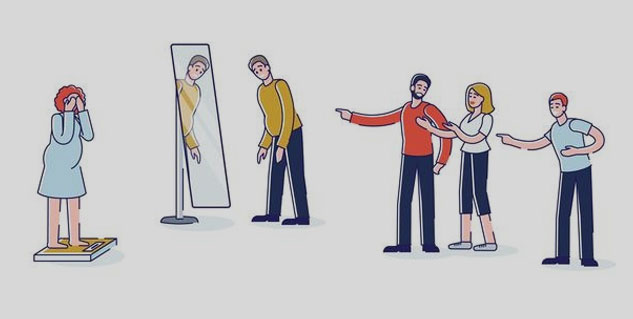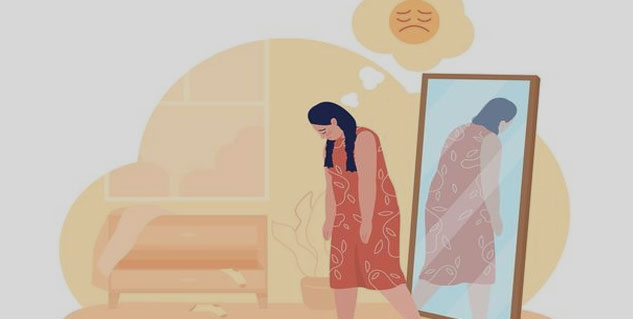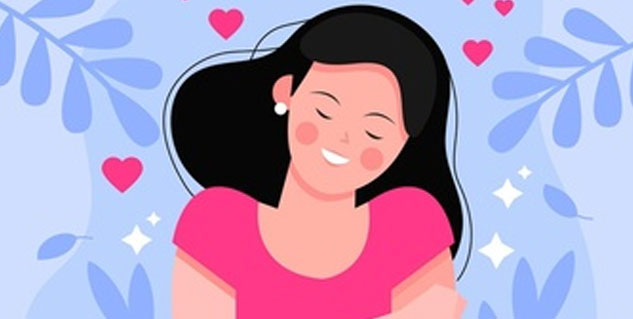
Chandigarh girl Harnaaz Kaur Sandhu created history on December 12 when she bagged the coveted Miss Universe crown. It was 21 years after Bollywood actor Lara Dutta that the crown returned to India. Hence, Sandhu rightly became the talk of the town this month. But do you know that the beauty queen was body-shamed in school? In several of her interviews, Sandhu revealed that she was bullied in school for being too thin. Body shaming is highly prevalent in our society. Every country has its set of beauty standards, and whoever doesn’t fit into those norms is subjected to such shaming. Quite understandably, this tends to have a major impact on a person’s psyche, affecting his/her life considerably. Is there any way to deal with it, to not let body shaming get the better of you? To get an answer to this question, Onlymyhealth spoke to Dr Jyoti Kapoor, Senior Psychiatrist, and Founder, Manasthali.
Table of Content:-
Fat shaming is something many of us have either experienced or at least witnessed. But is thin shaming that prevalent? “Body shaming applies to anyone who is criticised for their body shape or size,” Dr Kapoor said. “It happens with anyone who doesn’t fit the norm, be it too fat or too thin, too tall or too short, too dark or albino white,” she said. “For the victim, it's painful because they feel humiliated or rejected” because of their physical features, the doctor added.
How Does Body-Shaming Affect The Person?

(Photo Credit: Freepik)
Our society is shaped in a way it focuses on a person’s physical features. The first impression is generally based upon if the person’s physicality fits in the society’s accepted norms, rather than the person. If he/she doesn’t fit the bill, body shaming generally ensues. When this happens:
- The victims feel they don’t belong and are misfits in the environment they live in.
- They might feel alienated and isolated.
- Feelings of rejection and inadequacy cause a lack of self-confidence
- It can also lead to anxiety and mood disturbances, which further hampers their ability to interact and feel happy in social settings.
Also read: What Is Body Neutrality & How Different Is It From Body Positivity?
Why Is Body Shaming So Prevalent?

(Photo Credit: Freepik)
We are all brought up in an environment where strong prejudices prevail. From our individual households, where we get the first idea on what is beautiful and what is not, to the larger society represented through media, advertisement, mass entertainment, and now the omnipresent social media create and fuel our biases, Dr Kapoor explained. “The trends on body image are like fashion trends, which are entirely based on aesthetics of dressing a mannequin, whether at a shop or for a magazine and are many times unrealistic and even impractical,” she said.
- The young immature mind is far more susceptible to these images and tries to emulate them.
- Critical or humiliating comments are also a defence mechanism for the frustrated lot who themselves are struggling to maintain a sense of belongingness in a world that appears to expect so much in terms of what’s in and what’s not, the psychiatrist said.
- A person forms his/her idea of what is beautiful and what is not generally in the initial years. This is further carried through adulthood and especially among those who themselves have insecurities and have to prove themselves better by showing others as less than themselves.
Also read: Understanding Body Dysmorphia, Impact Of Social Media & Ways To Cope
How To Not Let Body-Shaming Get The Better Of You

(Photo Credit: Freepik)
To steer clear of its impact, it’s crucial to tackle body shaming. Here are some tips by Dr Kapoor that can help:
- Acceptance Is The Key: Each one of us has our strengths and weaknesses, which make us who we are. Once you accept yourself, with all your strengths and weaknesses, there is no fear of judgment or ridicule. Notably, until YOU don’t accept yourself, no one else’s acceptance will be enough. Once you acknowledge your constitution, you will be better able to enhance your strengths and work on your weaknesses.
- Health & Wellness: This concept revolves around having a positive outlook towards the self and others. You figure out what you identify with as your goal, and chart your path. This gives you a sense of confidence and self-esteem and others' viewpoints are entertained as means of reflection rather than forceful imposition.
- Strive For Physical & Mental Fitness: You need to understand that the physical attributes associated with cultural norms don’t necessarily indicate health and vitality. Your goal should be attaining physical and mental fitness rather than having a certain body measurement.
- Personality Is So Much More Than Looks: Your first impression of a person might be his/her physical features. But just after a few minutes, the focus shifts on how pleasant, or not, the person is and how he/she contributes to the overall mood and atmosphere. Thus, it no longer matters if he/she looks like a model off the ramp or like any ordinary person. “One’s best attribute is one’s positive countenance that puts everyone at ease and makes the interaction joyful,” Dr Kapoor said.
- Be Content: Those content with themselves never ridicule or humiliate others, the psychiatrist said. It’s only those who themselves are insecure about losing their self-worth that they try to project it upon others. Once the psyche of a bully is understood, it’s difficult to get bullied, she added. Hence, being content is something you can work on.
How To Be Comfortable With How You Look
What we seek from others is what we need to give ourselves. Hence, accept yourself the way you are. Identify your strengths and work towards enhancing them. Personal goals should be about one’s happiness because only a happy person can make the environment vibrate with joy and positivity. Hence, you need to identify what you want to be and then pursue the path that takes you there. Mental wellness goes beyond the absence of disease and is about reaching one’s potential. Hence, you can consider striving for that.
(With inputs from Dr Jyoti Kapoor, Senior Psychiatrist and Founder, Manasthali)
Photo Credit: Twitter/@HarnaazKaur
Also watch this video
How we keep this article up to date:
We work with experts and keep a close eye on the latest in health and wellness. Whenever there is a new research or helpful information, we update our articles with accurate and useful advice.
Current Version
